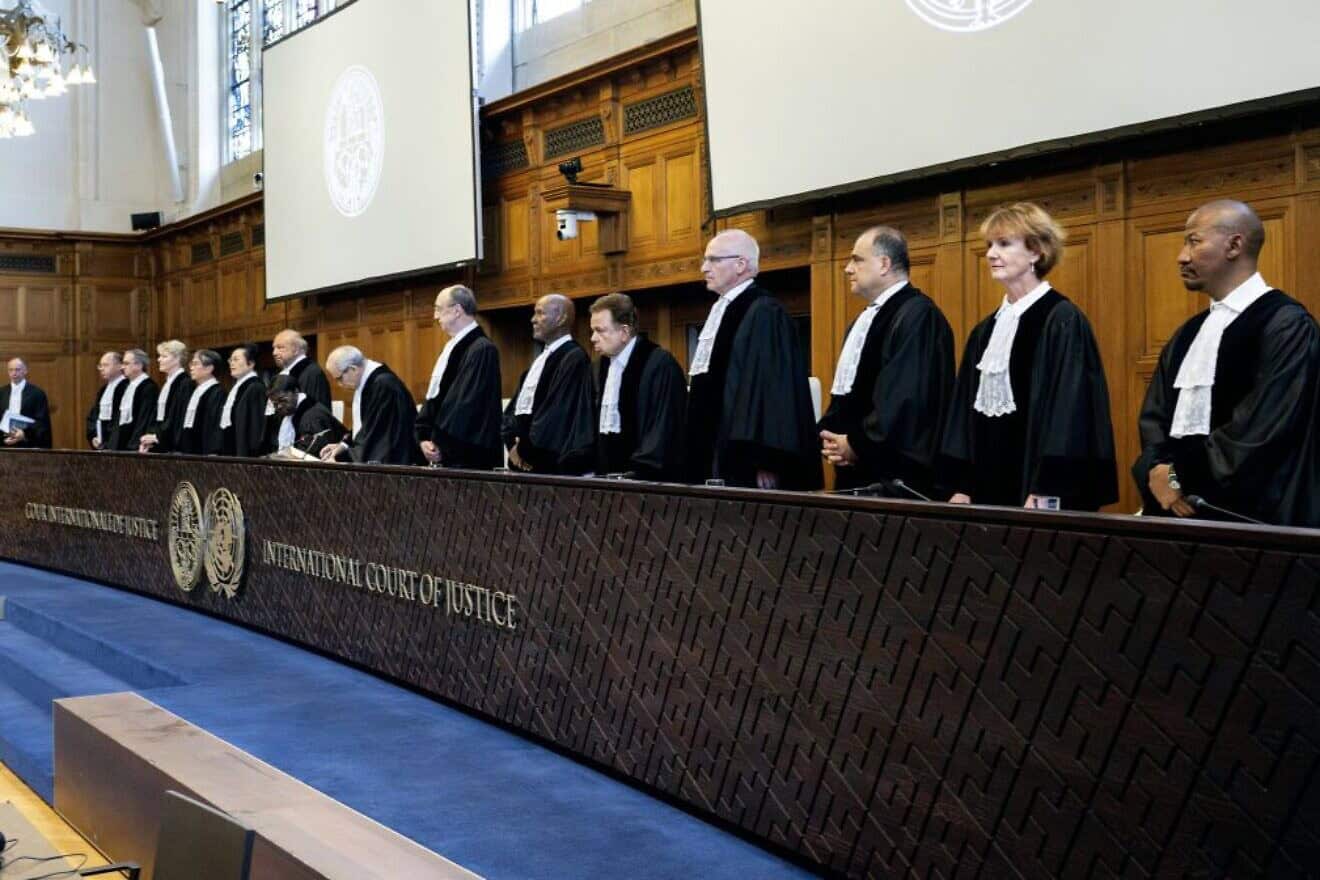The International Court of Justice (ICJ) recently made a decision that strikes at the heart of justice itself. By declaring Israel’s presence in Jerusalem, Judea and Samaria illegal, the ICJ has not only disregarded historical truths but has also undermined the very foundation of international law.
Justice begins with acknowledging historical facts. For millennia, the Jewish people have maintained an unbreakable bond with the Land of Israel. This connection is not merely spiritual or cultural; it is rooted in tangible archaeological evidence. One can visit the Cave of the Patriarchs in Hebron, where Abraham, Sarah and other biblical figures are buried. This site, built by Roman-era King Herod, stands as a testament to Jewish heritage and remains accessible to all who wish to witness it.
Similarly, the City of David, just outside the ancient Old City walls of Jerusalem, offers archaeological finds that substantiate the existence of the ancient Jewish kingdom of David. The continuity of place names across modern Israel further attests to the enduring Jewish presence throughout history.
Moreover, the legal foundation for Jewish sovereignty in Israel was established through international agreements. The League of Nations and the British Mandate recognized Israel as the national homeland of the Jewish people. This recognition was not just a political gesture but a binding legal principle under international law.
Despite these undeniable truths, the ICJ has chosen to rule against Israel’s legitimacy in its ancestral homeland. This decision ignores not only historical evidence but also key international agreements that affirm Israel’s rights in Judea and Samaria.
Let us examine the facts, as recently written up by Itamar Marcus of Palestinian Media Watch:
1. UN Resolutions 242 and 338: These resolutions affirm Israel’s right to administer what is today known as Area C in Judea and Samaria, where Israeli communities thrive.
2. The Oslo Accords: Signed agreements between Israel and the PLO explicitly reaffirm Israel’s administrative rights over Area C.
3. Security Concerns: Israel’s withdrawal from territories in pursuit of peace has tragically led to increased insecurity and thousands of Israeli lives lost due to terrorist attacks originating from these areas. Resolution 242 and the Oslo Accords do not require Israel to withdraw to new borders that do not guarantee Israel’s security.
4. Legal Obligations: Israel has already fulfilled its obligations under international law by withdrawing from significant portions of disputed territories, far exceeding the requirements set by U.N. resolutions and agreements.
Given these indisputable facts, it is clear that all Israeli towns and cities in Judea and Samaria are legal under international law. Any further development by Israel in Area C, often criticized as “settlement construction,” is therefore entirely legitimate and justified.
Looking ahead, if peace negotiations are to resume, Israel is under no obligation to cede additional land. In fact, Israel can rightfully demand that the Palestinian Authority retreat from parts of Areas A and B. These areas were relinquished to them but have been misused as bases for terrorist activities against Israel.
The ICJ’s unjust decision not only misrepresents history and international law but also serves as a stark reminder of the flaws within international organizations. By succumbing to political pressures and biases, the ICJ has undermined its own credibility and demonstrated a disregard for true justice.
On top of all this, international organizations ignore the well-known fact that the P.A. is a terror-supporting organization. The U.S. Congress’s Taylor Force Act acknowledges this, forbidding the U.S. government from transferring funds to the P.A. so long as it continues to fund terrorists as a reward for the successful murdering of Jews.
Instead of misusing international law against Israel, global organizations should be using international law against the terror-supporting P.A., a corrupt institution, financially viable due to international aid, bent on killing Jews, showing no intent of living in peace with the Jewish State of Israel.
Unfortunately, as a fallout of this unjust ICJ ruling, not only will international organizations continue to do nothing against the P.A., but we might witness the U.N. move to impose sanctions on Israel.
Despite that threat, the Jewish people’s resolve remains unshaken. We are fighting not just for our land but for our very existence, for justice and for the moral principles that guide us. History has shown that the Jewish people and the Land of Israel have endured far greater challenges and emerged stronger.
The Knesset recently passed a decisive resolution with an overwhelming majority, supported by both coalition and opposition parties, specifically rejecting the establishment of a Palestinian state. In the face of the ICJ’s unjust ruling, this sends a powerful message. It affirms unequivocally that Israel will not acquiesce to the creation of a state called “Palestine” on our ancestral homeland.
This unified stance showcases the unwavering resolve of the Jewish people in the face of international pressure and injustice. It demonstrates that we will not cower or compromise our rightful and legal claims to Jerusalem, Judea and Samaria, which are integral to our historical and religious identity.
Prime Minister Benjamin Netanyahu’s speech addressing both houses of Congress underscored the justice of Israel’s existence in our ancestral homeland as well. Netanyahu’s address highlighted Israel’s role as a beacon of democracy and stability in a volatile region, emphasizing that our presence here is not just legitimate but essential for regional peace and security. It will serve as a rallying cry for continued support from our allies and a firm rebuttal to those who seek to delegitimize Israel’s rightful place among the nations of the world.
I firmly believe that the truth will prevail despite the ICJ’s misguided ruling. The Jewish people will continue to defend our homeland with unwavering determination and a steadfast commitment to justice and morality. International law may falter, but our resilience and righteousness will ultimately triumph.


























